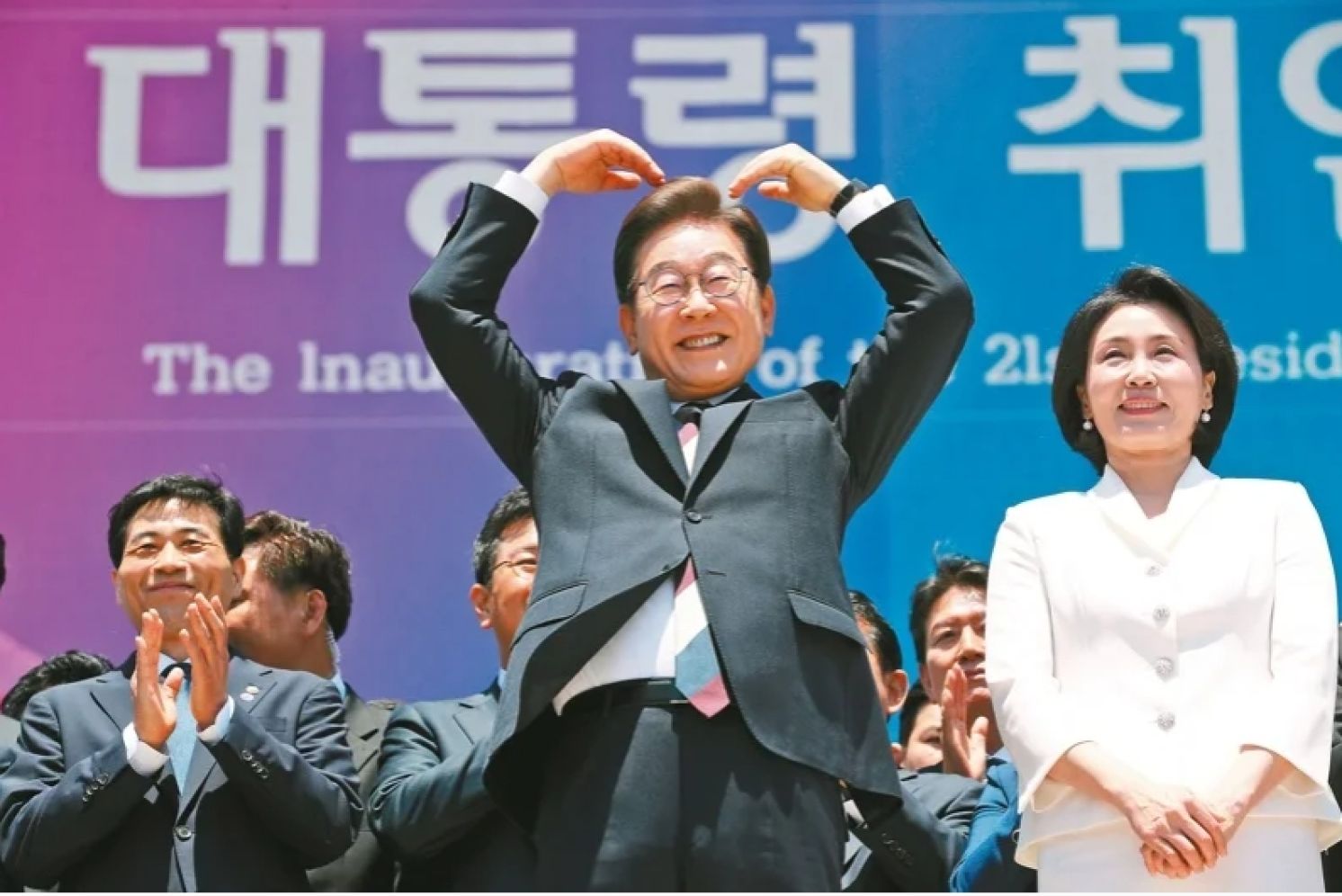
Two Lessons South Korean Election Teaches Taiwan
United Daily News Editorial, June 5, 2025
Lee Jae-myung of South Korea’s Democratic Party won the presidential election with 49.42 percent of the vote, defeating Kim Moon-soo of the ruling People Power Party, who received 41.15 percent. He assumed office immediately. On the surface, it seemed like voters were shifting from the conservatives to the liberals; in reality, it was a collective backlash against former President Yoon Suk-yeol. Mr. Yoon’s chaotic imposition of martial law led to months of governmental disorder and economic downturn. Even Acting President Han Duck-soo and his designated successor, Choi Sang-mok, were impeached one after another, leaving Deputy Prime Minister and Minister of Education Lee Ju-ho to assume both roles. In this leaderless state, South Korea struggled to cope with U.S. President Donald Trump’s tariff war, fueling public discontent.
Driven by a collective sense of national crisis, South Koreans rushed to the polls to save their country, resulting in a voter turnout of nearly 80 percent—the highest since the 1997 Asian financial crisis. This illustrates the public’s urgent desire to move past the nightmare of amateur politics, breaking away from regionalism and ideological partisanship. They placed their hopes in Mr. Lee, who called for national unity and brought with him rich political experience, hoping he could restore South Korea’s economic prosperity.
Unlike the “strong opposition, weak administration” scenario under President Yoon, Mr. Lee not only won the presidency, but his Democratic Party also secured a majority in the National Assembly. This “full control” grants Mr. Lee a rare opportunity to push forward political and economic reforms. Domestically, he must mend the divisions and frustrations left by the martial law debacle; internationally, he must carefully navigate Mr. Trump’s tariff war. South Korea had earlier proposed the “July Plan,” aiming to negotiate tariff exemptions through cooperation in trade, investment, shipbuilding, and energy by July 9. In other words, Mr. Lee faces daunting challenges with little room for a political honeymoon.
In foreign affairs, Mr. Lee was previously labeled as “pro-China, anti-America.” However, during his campaign, he advocated for pragmatic diplomacy—improving relations with China and easing inter-Korean tensions, contrasting with Mr. Yoon’s heavily pro-American stance. Lee still emphasized the importance of trilateral cooperation among South Korea, the United States, and Japan, stating that the “R.O.K.-U.S. alliance” is the cornerstone of national security. However, he also asserted that wartime operational control should be returned to South Korea. Therefore, while dramatic shifts in foreign policy are unlikely, Mr. Lee is expected to adopt a more flexible and autonomous approach through pragmatic governance.
From South Korea’s election, Taiwan can draw two major lessons: First, the high neutrality of South Korea’s judicial system. Chief Justice Chung Hyung-sik of the Constitutional Court—nominated by President Yoon—still led the court in unanimously passing the impeachment of Yoon, allowing for a new presidential election. Furthermore, although Mr. Lee was previously under investigation for violating election laws, the High Court deferred proceedings to ensure his equal opportunity to campaign as a candidate. This allowed him to run for president without legal obstruction. In contrast, Taiwan’s Democratic Progressive Party (DPP) has used mass recall campaigns to divide public opinion and undermine democracy. Taiwan’s Central Election Commission and judicial bodies have been accused of bias, selectively targeting opposition parties, which has intensified political conflict and stalled governance.
Second, the impressive voter turnout—nearly 80 percent—was significantly aided by the absentee voting system. The voting rate among overseas South Koreans reached a record 79.5 percent, while early voting reached 34.74 percent, the second-highest in history. In Lee’s stronghold of Jeolla Province, early voting exceeded 50 percent, creating a phenomenon of “early voting, early victory.” In contrast, despite being a so-called information communications technology (ICT) powerhouse, Taiwan’s absentee voting bill has languished in the legislature for over 20 years. The DPP has firmly blocked it, citing constitutional concerns and fears of Chinese interference. This not only undermines the voting rights of overseas citizens but also leads to long lines and the bizarre “vote counting while voting” situation.
President Lee was sworn in the day after his victory, signaling South Korea’s eagerness to move beyond the political darkness of martial law and restore normal governance. In contrast, Taiwan is mired in bitter recall battles that will last through the end of the year. Looking at South Korea and then looking back at Taiwan—shouldn’t the DPP feel ashamed?
From: https://udn.com/news/story/7338/8785888
〈Back to Taiwan Weekly Newsletter〉